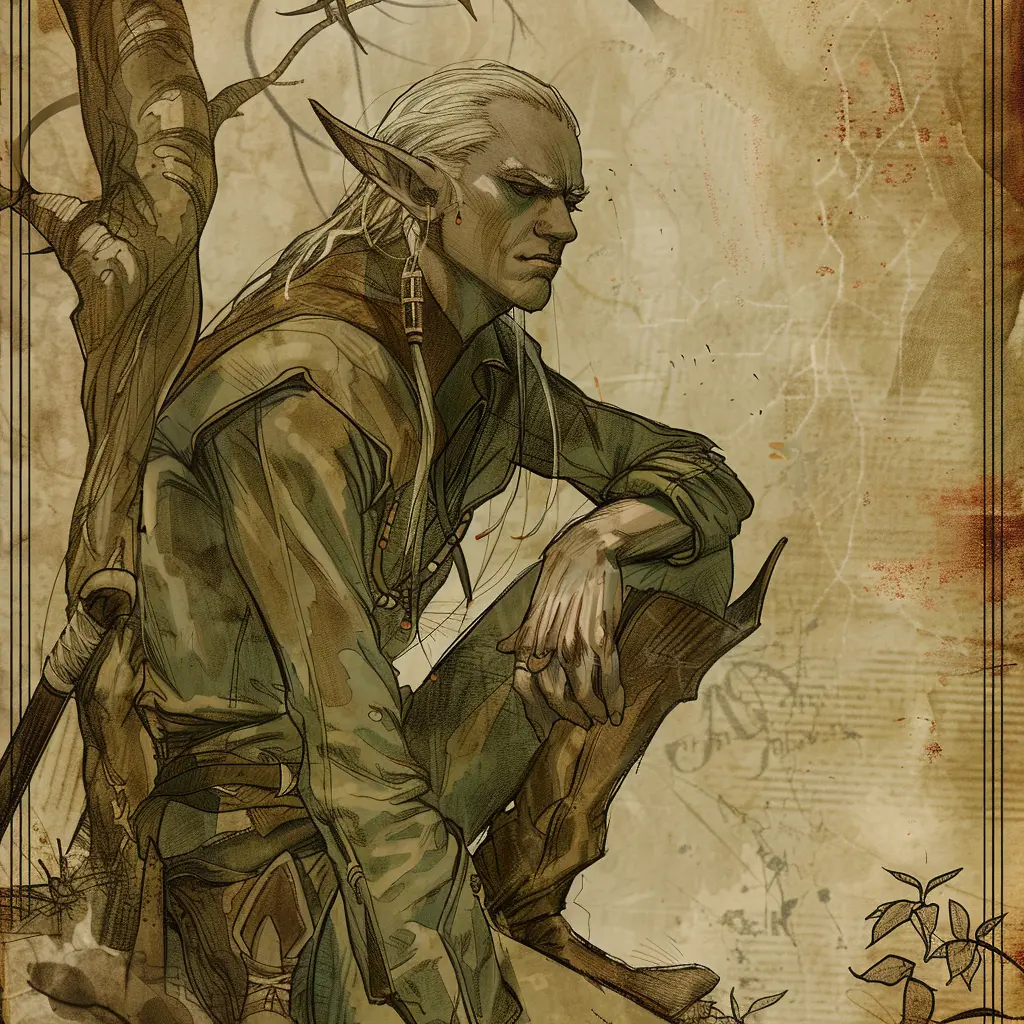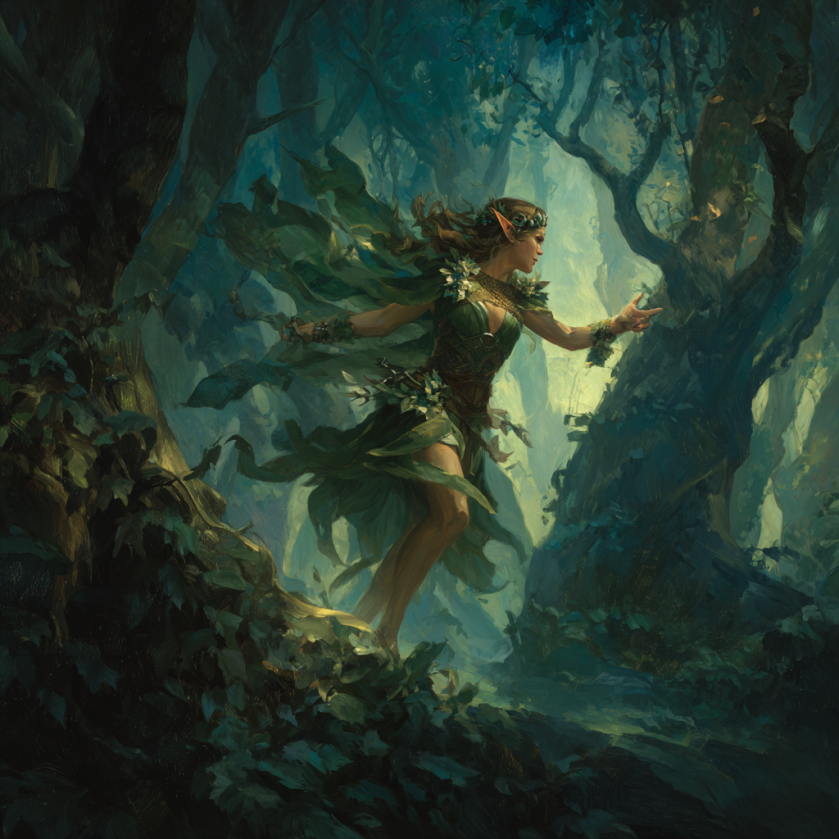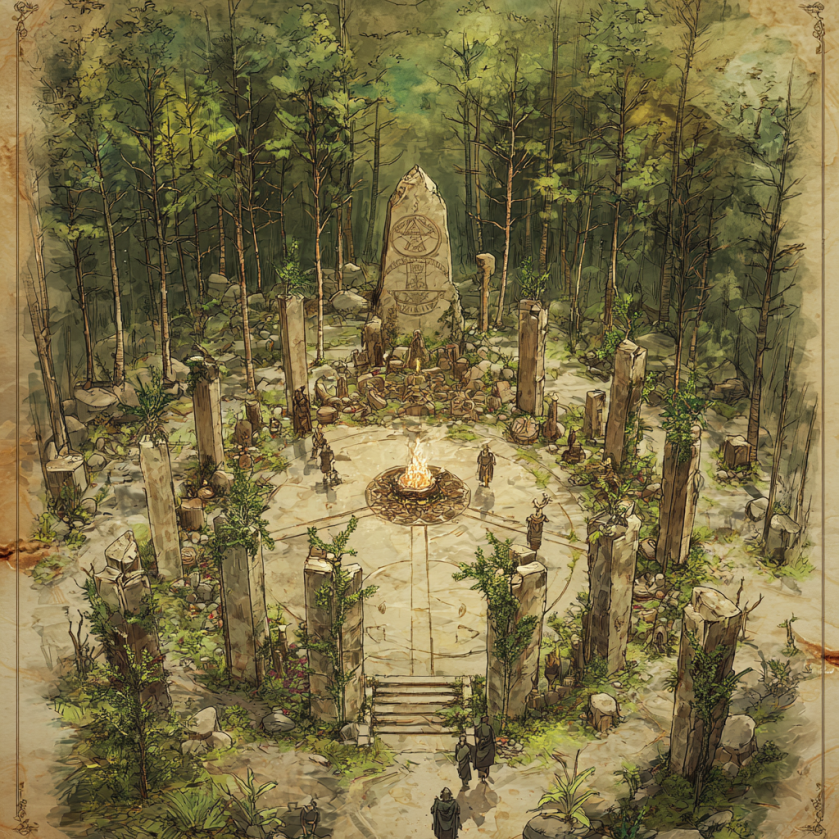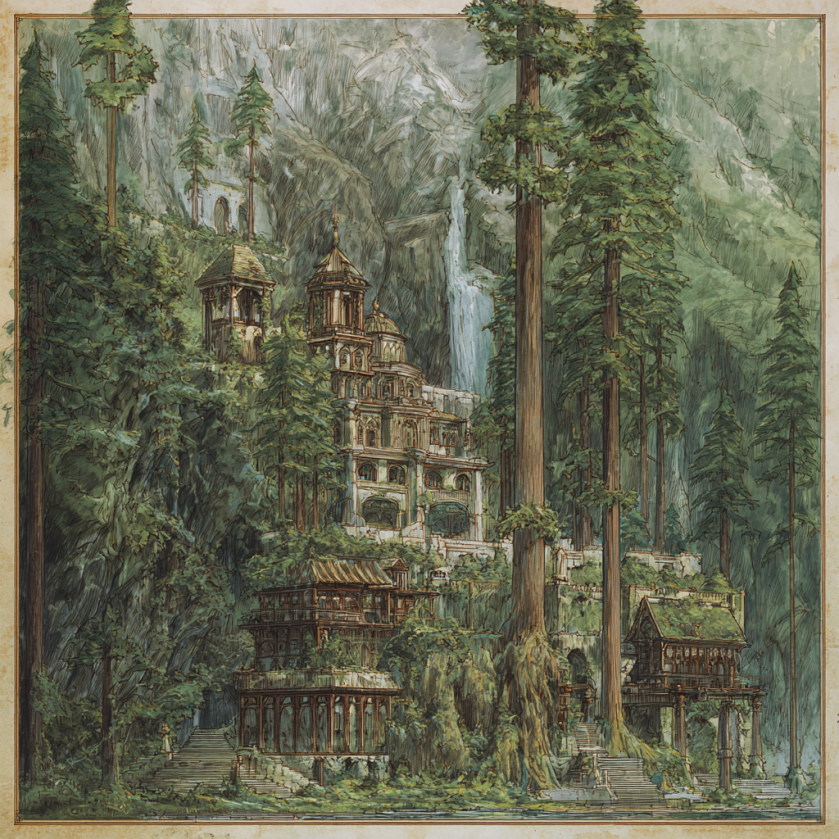Sylvar
Forest elves who withdrew from the ancient Archives to live as guardians at civilization's edge. These nature-attuned descendants of both Eldar and Drow developed distinct tribal customs while maintaining their ancestral magical heritage. Sylvar communities serve as watchers between the wild places and settled lands, balancing preservation of natural spaces with cautious engagement in The Crescent's affairs.
Physical Characteristics
Sylvar possess lithe builds well-suited for moving through dense forests, standing shorter than their Eldar cousins at 5'0" to 5'8". Their heritage shows in subtle variations: Sun Sylvar display golden-tinted skin and hair ranging from platinum to warm browns, while Moon Sylvar have silver-sheened darker skin with deep blues, purples, and blacks in their hair. Most Sylvar blend both ancestries, creating diverse appearances unified by subtle bark-textured skin patches and naturally pointed ears shaped like leaves.
Their forest adaptation grants exceptional sight and hearing, allowing them to navigate woodlands with supernatural grace. Sylvar reach maturity around age 100 and live approximately 400 years, long enough to witness multiple generations of forest growth and change.
Culture and Governance
Sylvar organize themselves through tribal councils led by druids and clerics, with leadership flowing naturally to those who demonstrate deep connection to natural spiritual traditions. Individual communities adapt their governance to local forest conditions, creating loose confederations rather than rigid hierarchies.
Their egalitarian society assigns roles based on personal aptitude and community needs rather than birth or wealth. Seasonal cycles drive most major decisions, with communities gathering during solstices and equinoxes to share resources, exchange knowledge, and celebrate their connection to natural rhythms.
Religious practices center around reverence for nature itself, often incorporating rituals that strengthen bonds between community members and the living forest around them.
Nature's Balance
How do you balance forest preservation with civilization's expanding needs?
The cost of progress:
- Every cleared acre for farmland is wilderness lost forever
- Every mine opened in the mountains scars the landscape
When does protecting nature become obstruction of progress, and what compromises can a sylvar accept without betraying their deepest values?
Traditions
Sap Sharing: During autumn festivals, community members exchange small vials of their blood mixed with tree sap, creating personal bonds that mirror the forest's interconnected root networks.
Naming Renewals: Individuals choose new names at pivotal life moments. These ceremonies often involve planting trees or creating natural artworks that will outlive the name-giver.
Relations with Other Peoples
Sylvar maintain the strongest relationships with halflings and primal orcs, sharing practical approaches to living sustainably within natural environments. Their forest communities often border halfling shires, creating trade networks based on seasonal exchanges of forest products for crafted goods.
Dwarves: Tensions run high over resource extraction and mountain development practices that affect downstream forest ecosystems. Sylvar view dwarven mining as necessary but destructive, leading to complicated negotiations over land use.
Resource Conflicts
Sylvar opposition to mining and logging creates ongoing friction with dwarven and human communities that depend on resource extraction.
The divide: What seems like reasonable land use to mountain peoples feels like willful destruction to forest dwellers.
These tensions can explode into open conflict when valuable resources are discovered in disputed territories, putting mixed adventuring parties in difficult positions between their companions and their peoples.
Fiendfolk and Candlefolk: More accepting than most peoples of these unusual heritage individuals, Sylvar communities often provide sanctuary for those seeking to understand their transformed nature away from urban prejudices.
Other Elves: Complex relationships with both Eldar and Drow reflect their mixed heritage. While sharing magical traditions, Sylvar often critique their cousins' urban focus and political maneuvering.
Character Creation Notes
Sylvar work naturally as druids, rangers, monks, and clerics, reflecting their spiritual connections to nature and practical survival skills. Their magical heritage also supports sorcerers and wizards who focus on nature-based magic.
Regional Backgrounds: Forest guardians, tribal shamans, wilderness guides, or diplomatic envoys representing Sylvar interests in mixed communities.
Cultural Integration: Sylvar characters understand both ancient magical traditions and practical wilderness survival, often serving as bridges between civilized and wild spaces.
Key Motivations: The drive to protect natural places while engaging constructively with expanding civilization creates internal tension. Many Sylvar feel called to preserve specific forests or maintain the delicate balance between growth and sustainability.



